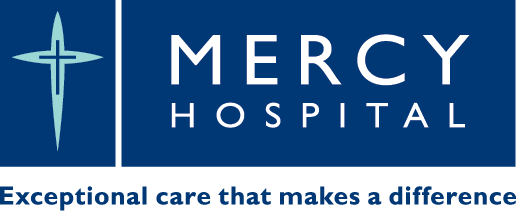Covid-19 Information
The safety, health, and wellbeing of our patients, staff, and specialists are of utmost importance to us. Currently, everyone coming to Mercy Hospital is required to practice good hand hygiene.
If you have had Covid-19 since receiving your surgery date, please contact your surgeon to check that this date is still appropriate. For some procedures, evidence suggests it is best to defer surgery following recovery from Covid-19.
For further information, please refer to Covid-19 Information for Patients.
Preparing to be Discharged
Preparing to go home
When it is time for you to leave Mercy Hospital, your nurses will ensure you are well-prepared and know what to expect. If you do have questions, please ask your specialist or nurse.
Discharge checklist
-
Arrange a support person to pick you up and look after you for at least 24 hours post-surgery (or longer depending on surgery type).
-
Collect all of your belongings and have a pre-discharge consult.
-
Collect your prescription prior to leaving.
-
Make sure that you understand how to take your pain medications.
Some pain medications can cause constipation, make sure that you understand what to do if this happens. -
Make sure that you understand how to care for any wounds that you have.
-
Understand how to use any mobility aids that you have (e.g. crutches).
-
Know how long to wear your compression stockings (if relevant).
-
Make sure you have your physiotherapy rehabilitation plan if required.
-
Make sure you collect any home equipment ordered for you by the Mercy Allied Team.
Discharge time
For day stay patients, discharge time will vary and will be decided in consultation with your nurse.
For overnight patients, Mercy Hospital has a strict hospital discharge time of 10.00 am - 11.00 am. This is very important as it allows us time to prepare the room for the next patient. Please ensure you have transport arranged for the day and time of your discharge.
Post Discharge Care
Please contact your specialist or general practitioner immediately for advice if you become unwell or develop any of the following:
- Increased pain, redness or swelling around the wound site.
- Bleeding or wound ooze.
- Fever or chills.
- Pain, tenderness or swelling in the calf or thigh.
- Chest pain or shortness of breath.
If you experience shortness of breath, chest pain or excessive bleeding, please call 111.
Your care does not end when you leave the hospital. Patients will receive an invitation via text message or email to provide feedback on your experience. Your surgeon should also give you further instructions and / or a follow up appointment time.
Support options
If you require the Care Coordination Centre (CCC, previously 'District Nursing Service') and you are eligible, Mercy Hospital nursing staff can make a referral. We cannot guarantee however, that a referral will be accepted.
All New Zealand residents over the age of 17 years who are not ACC funded could meet the criteria for referral to Care Coordinator Centre, however please understand that not every referral will accepted.
The sooner a CCC referral is completed the better, but it cannot be completed until after your surgery. Confirmation of acceptance of referral can sometimes be after your discharge.
If approved, home help is provided to a maximum of one hour per week. If you have an able bodied person in the house, the DHB is not funded to approve any home help for you.
If approved, personal care is provided to a maximum of three visits per week.
If your family and friends are able to bridge any care, you may be entitled to CCC care when your family / friends leave.
For self-funding / insured patients there are currently limited private options to access respite care due to COVID-19 restrictions. The Eldernet website shows those facilities accepting short term respite clients and we suggest you enquire directly with those facilities. There is no situation that respite care is funded by the DHB.
Self-funding / insured patients will not receive any Allied Health support (physiotherapy, occupational therapy) from the public system due to the high level of need in the DHB. This means that currently you will incur a charge for physiotherapy, private occupational therapy assessments and any rehabilitation equipment hired.
ACC funded patients have a number of support services available. It is best to discuss these after your surgery with your ACC representative directly.
Post-operative Physiotherapy
Following your surgery, physiotherapy appointments are available at Mercy Physiotherapy Clinic, on the second floor of Mercy Hospital.
To make an appointment you can talk to your ward physiotherapist before you leave Mercy Hospital or you can contact us using our details below.
Contact:
- Phone 03 467 6728
Urinary Catheters
A urinary catheter is a thin tube that’s used to empty your bladder. Following some surgeries you may need to have a catheter in place when you go home. If required your doctor will explain this to you. Click here to learn more about going home with your urinary catheter.
Patient Feedback
Patient feedback
Patients are sent an invitation via email or text message to provide feedback on their care two weeks after discharge.
Mercy Hospital uses Cemplicity to gather patient feedback. Responses are anonymous and not able to be traced back to individuals.
If you prefer to provide written feedback, forms are provided in the reception areas.
In addition, feedback can be provided at anytime by contacting our staff.


